
The police we are familiar with in film and television dramas are mostly policemen in suspense dramas of police and bandits. They encounter major criminal cases. Criminal policemen often go deep into tiger dens and fight against dangerous elements; the process of criminal investigation reasoning is also full of wisdom. A battle of knowledge. Therefore, the criminal police in the suspense drama of police and bandits can make the audience awe-inspiring and feel that they are very good and amazing.
"Police Honor" is a bit different. It is a relatively rare drama on the market that focuses on the police at the grassroots police station. The police usually face various civil disputes. thing. For example, who lost his diaper, who made some kind of noise upstairs, whose door was locked but the key was left in the house, who walked the dog without a leash, who had conflicts between husband and wife, and whose husband "run away from home" "It's...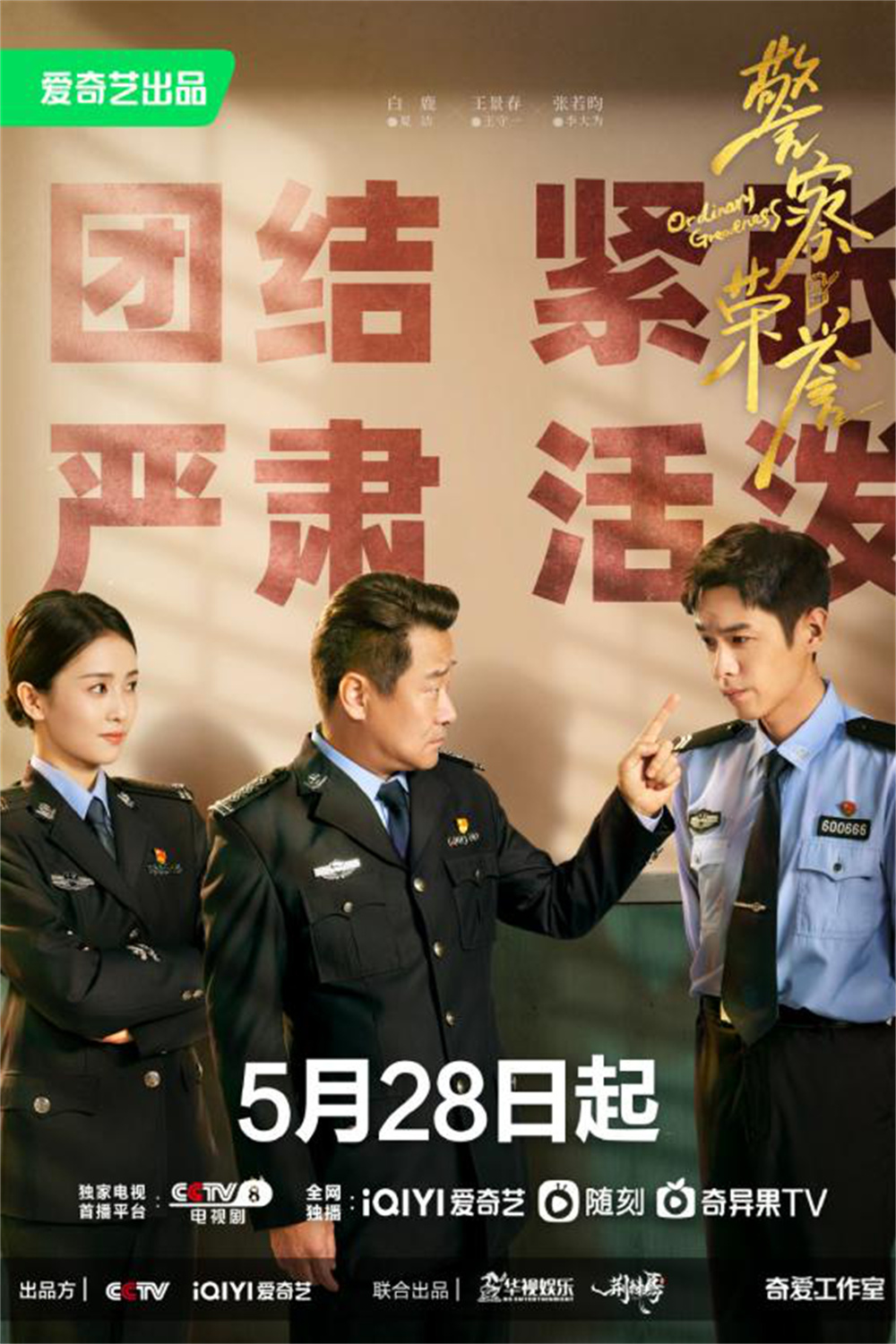
The story takes place in a grassroots police station called Balihe. The residents of the jurisdiction are complex, and there are many disputes on weekdays. The director Wang Shouyi (played by Wang Jingchun) has rich experience, strategizing strategies, and is well versed in all kinds of human situations.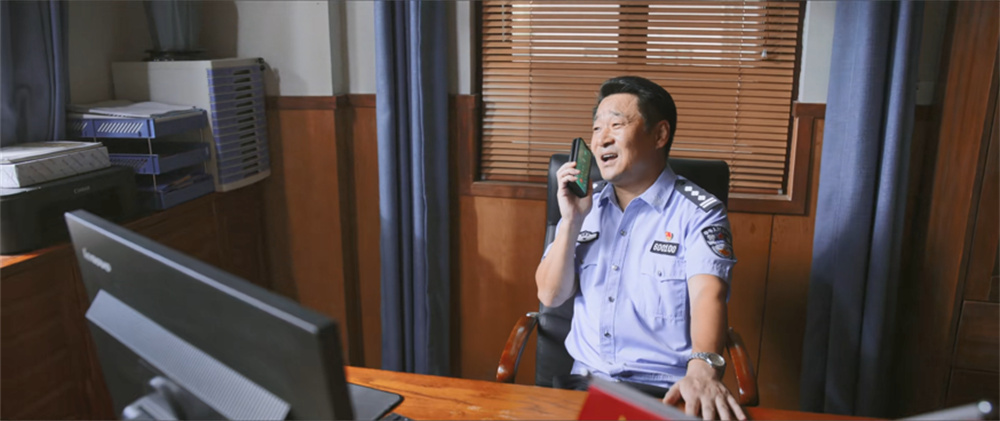
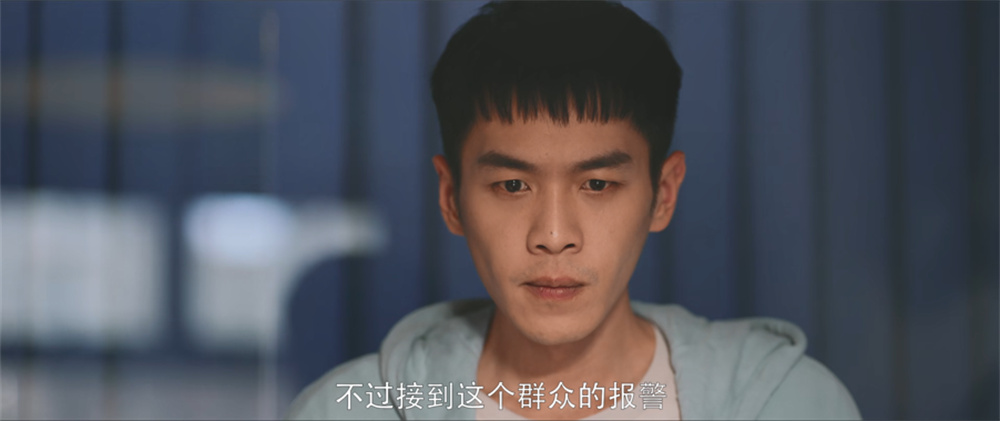
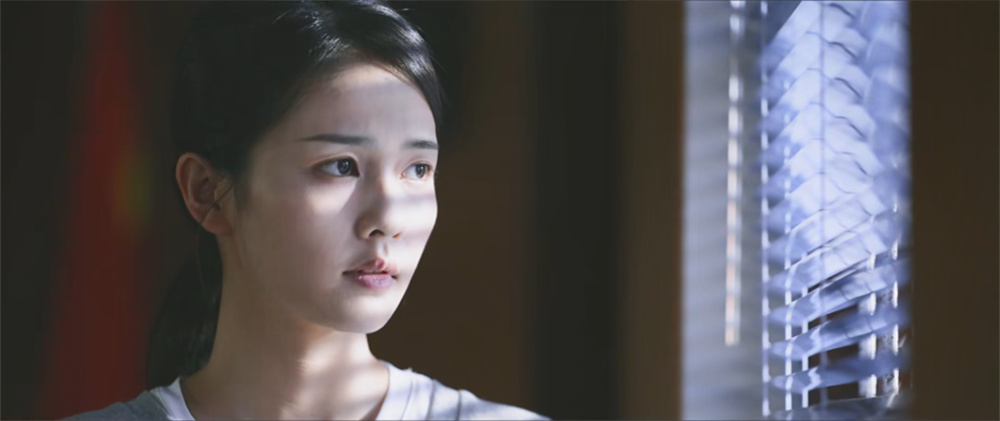
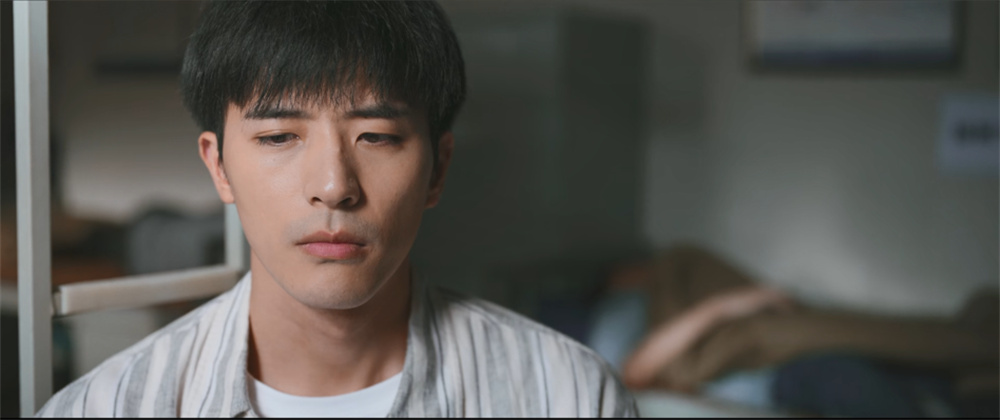
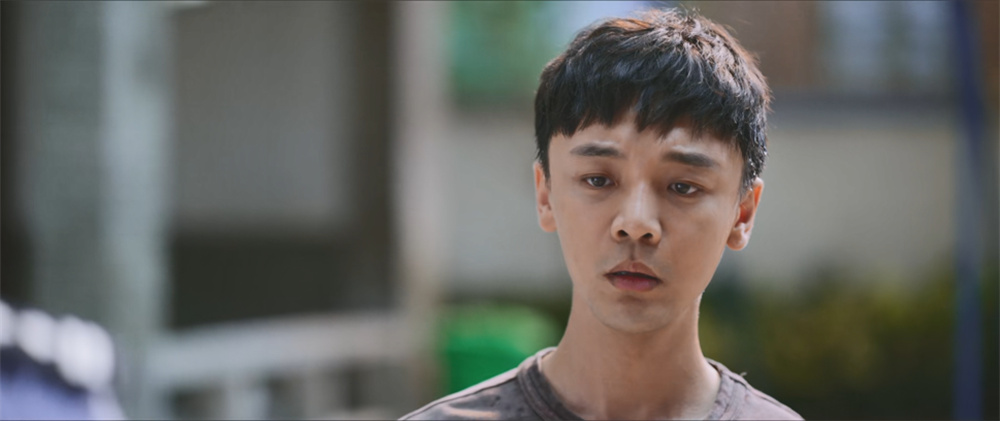
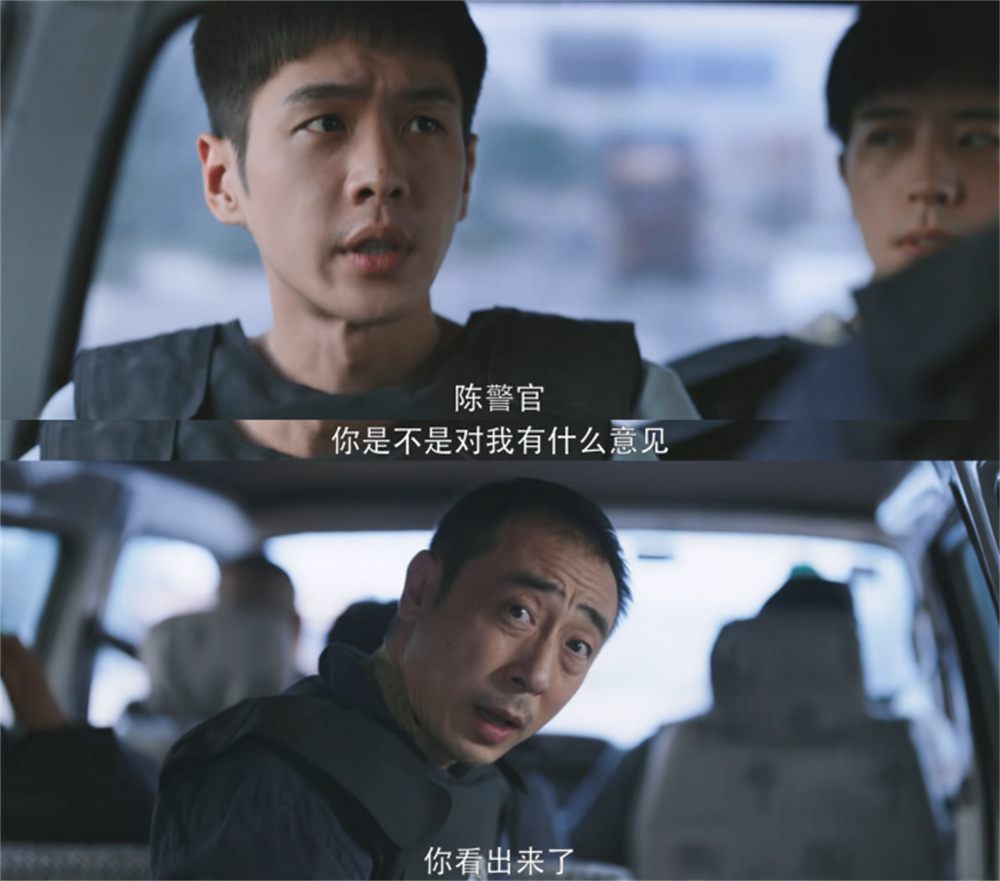
Summarize the work characteristics of grassroots police in four words: it is not a "cool drama".
There will be lone heroes in cool dramas. Even in the face of extremely vicious criminals, our protagonist dares to go deep into the tiger's den alone.
"Police Honor" tells you that there is no such thing as a "lone hero". In order to catch a Class A wanted criminal, a dozen or so police officers were dispatched, fully armed, and took two vans. Li Dawei was confused, and Chen Xincheng scolded him: The police are not here to "play for their lives".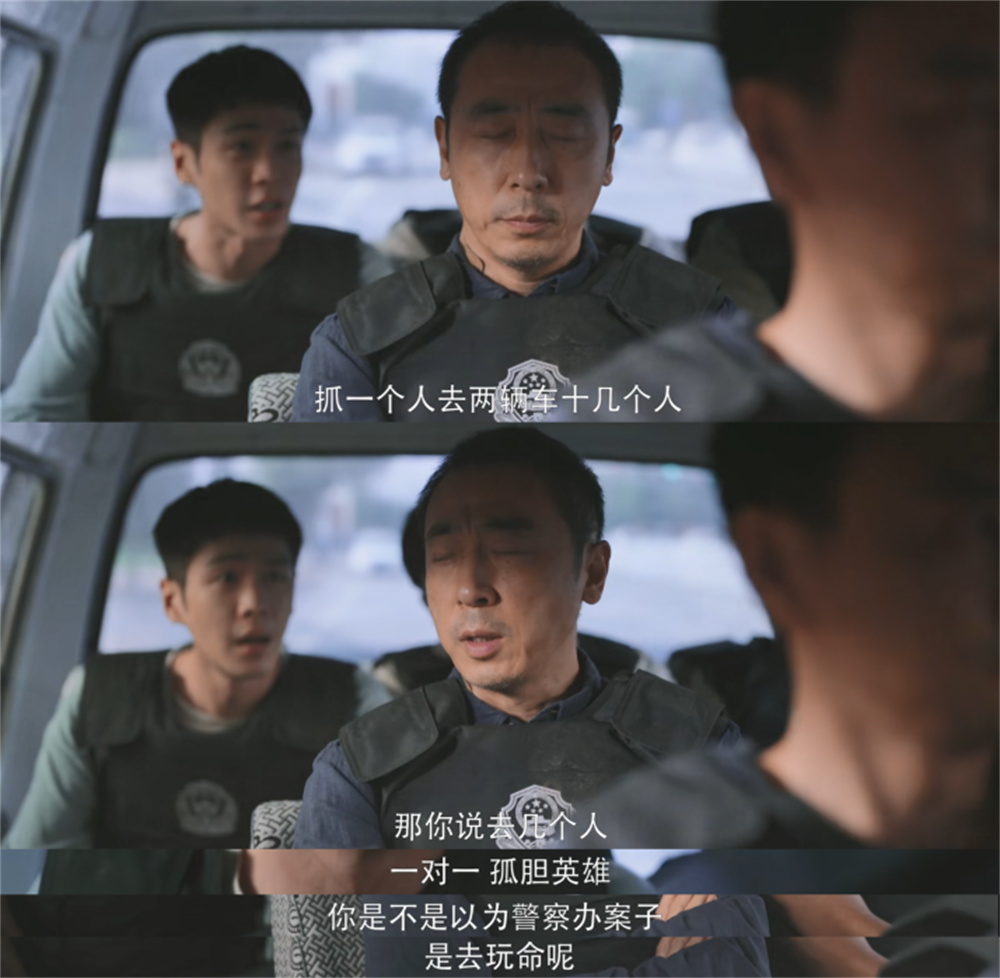
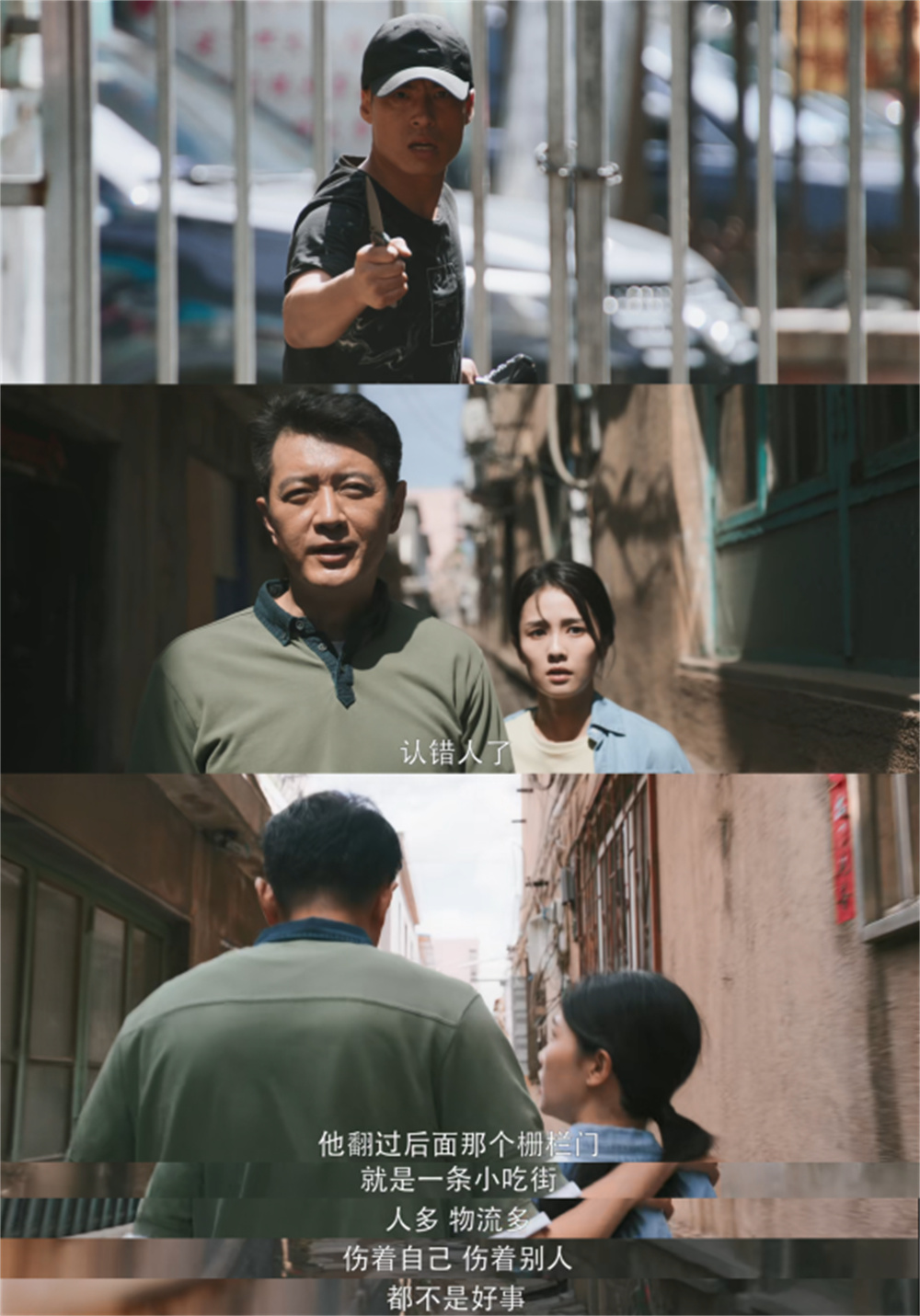
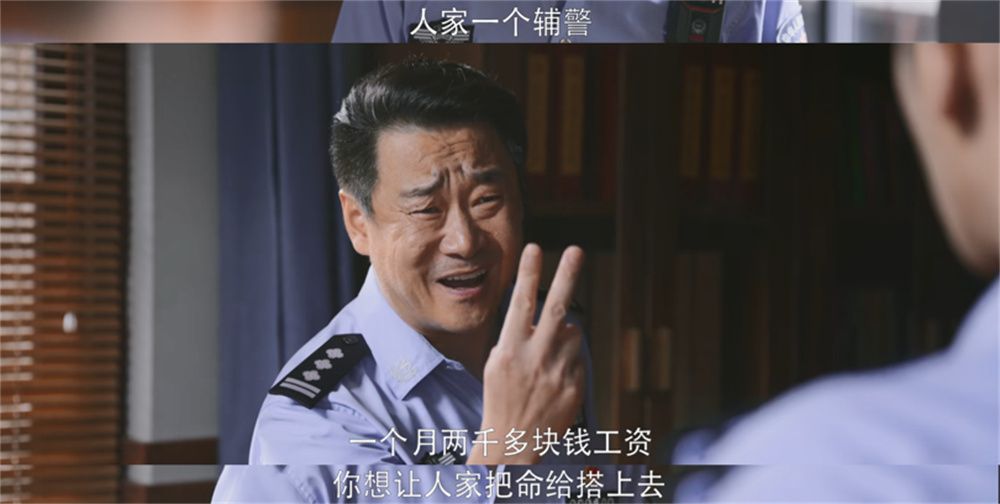
It's not a "cool drama", it's an improvement in the creator's concept. Instead of exaggerating personal heroism, not encouraging "heroes", and not glorifying sacrifices; instead, we deeply realize that the life of the police is also life. The police must protect the people, but they must protect themselves first.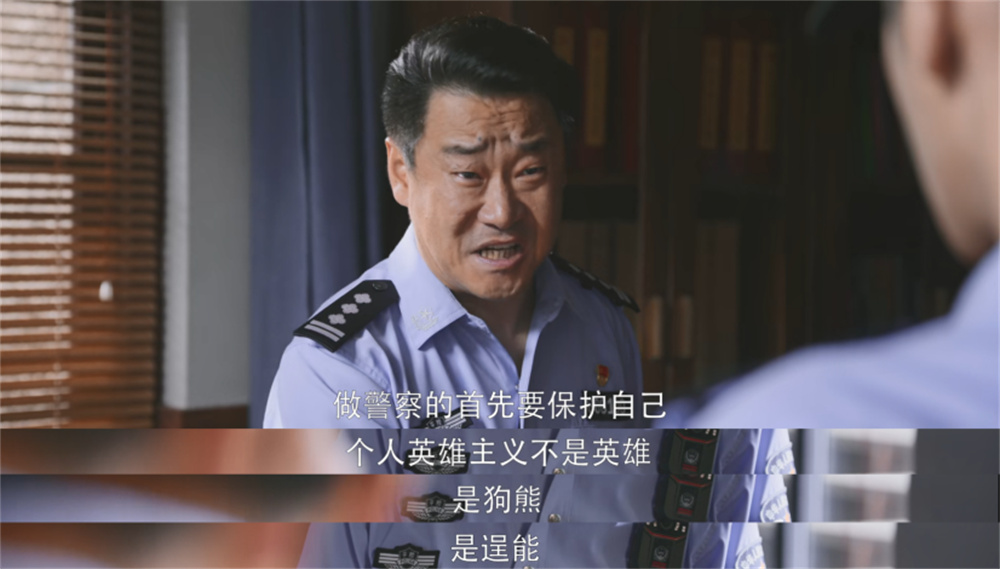
Very typical is a dispute that continued on and off from episode 7 to episode 10. An old man walks his dog without a leash, scaring a little girl. The old man then got into an argument with the girl's parents, a young couple. This is the old man's fault, but the old man not only didn't think he was at fault, but also corrupted the young couple and asked them to lose money. Obviously, this old man is "disrespectful for the old" and is no different from making trouble for the people.
When the police dealt with the dispute, the old man fainted with anger, and it was okay to send him to the hospital. The next day, his sons and daughters took the living old man to the police station and asked the police to pay for the medical bills. The police persuaded them to leave.
The old man's children then depended on the young couple. Young couples naturally don't pay for so-called medical expenses - what kind of reason should they pay for it. The old man's children and relatives surrounded the door of the young couple's house, making all kinds of riots. They also wrote big characters with red paint on the white wall outside the door, causing the young couple's family to be disturbed, and the whole family was trembling. Nervous breakdown.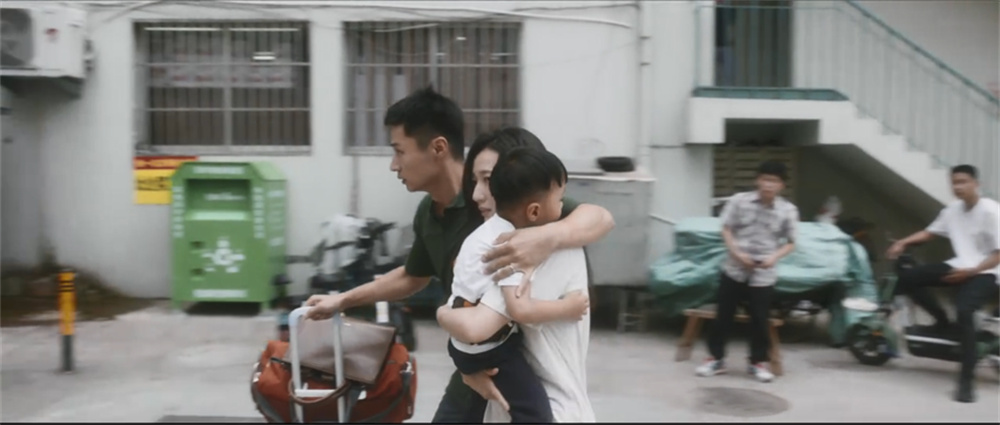
The audience must feel aggrieved when they see this: how come, good people have to let bad people?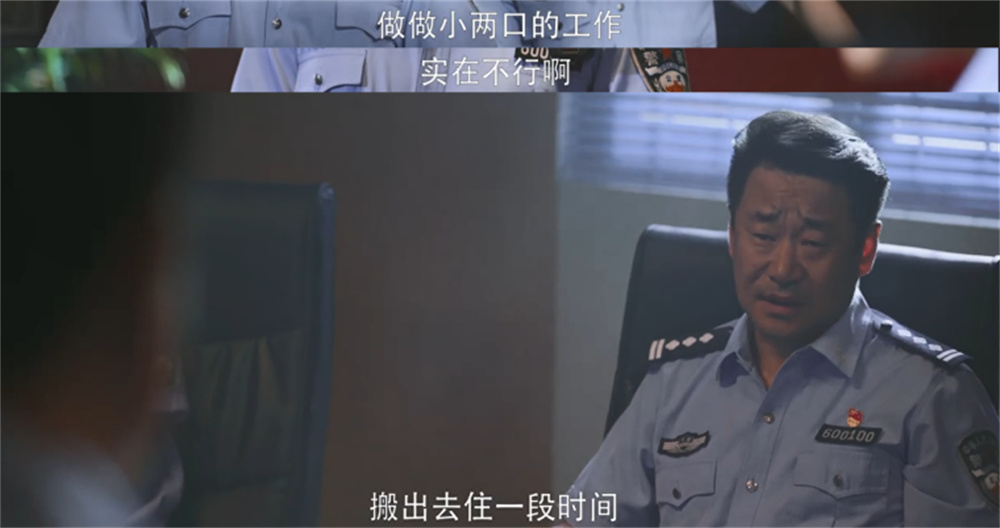
What, if it wasn't for the grandfather's grandsons who had "handles", the police would have nothing to do with them?
Cao Jianjun persuaded the young couple to choose reconciliation, and the two sides should not take responsibility for each other. Young couples ask: What are their responsibilities? Their children were frightened by dogs, they were blackmailed by the old man, and the old man's family came to harass them in various ways... They did nothing wrong, why should they take responsibility?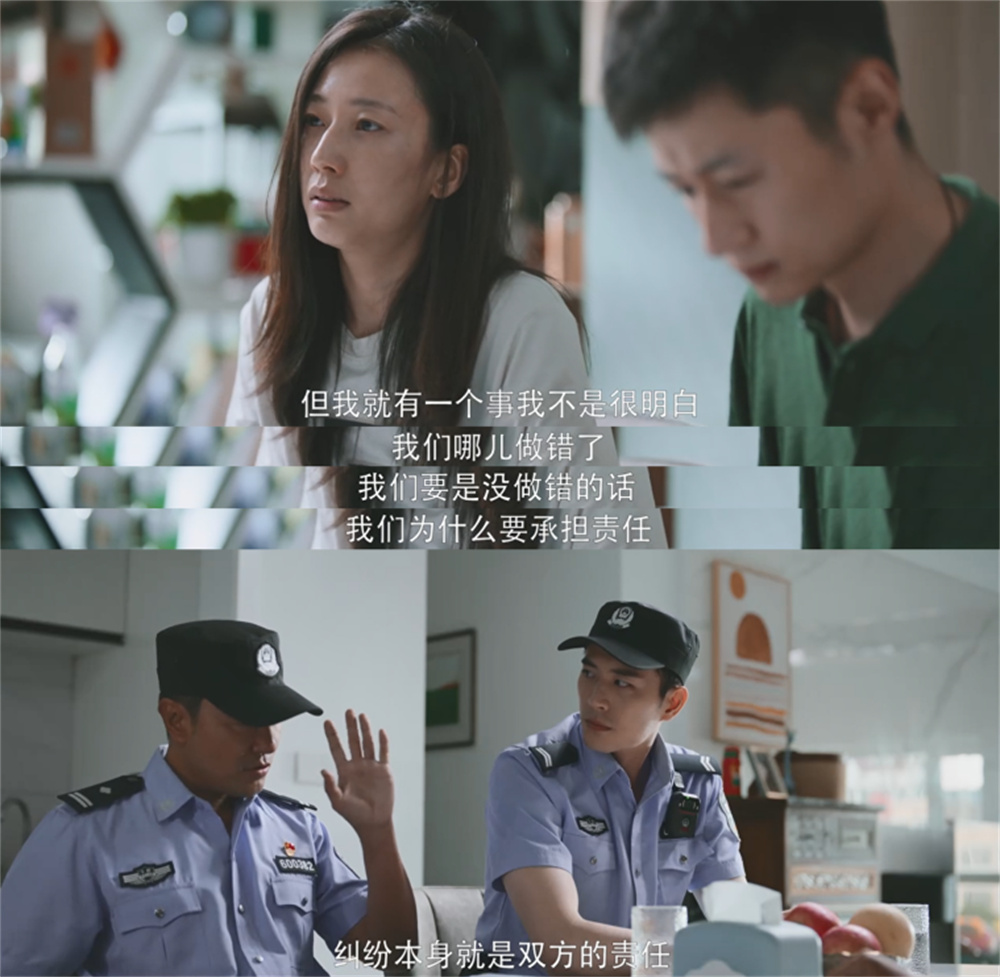
But the final result: the young couple chose to reconcile. And the value stance of the drama, from Wang Shouyi to Cao Jianjun, is also on the side of "reconciliation".
In the work experience of Cao Jianjun and Wang Shouyi, they have no direct evidence to prove that the old man's family "did evil"; even if there is evidence, the young couple and the old man's family have a lawsuit for a year and a half, and the time is spent in There, the old man's family will definitely continue to hold on; even if the law decides that the young couple wins, with the virtue of the old man's family, they are unlikely to apologize... Then, the young couple's lawsuit is to fight for one breath , but this tone is time-consuming and labor-intensive, and it may not be able to win it back, and I will not have a happy birthday in the next year or two.
So, in order to get the young couple's life back on track as quickly as possible, they suggested reconciliation. Cao Jianjun angrily rebuked Yang Shu for saying, "The justice you pursue is useless except to destroy the happiness and tranquility of this family of three." Wang Shouyi also called Yang Shu over and taught him, "You have come to the grassroots to exercise. No matter how you develop in the future, the most important thing is to learn the world... Nothing is black and white, not even right or wrong. Unchangeable."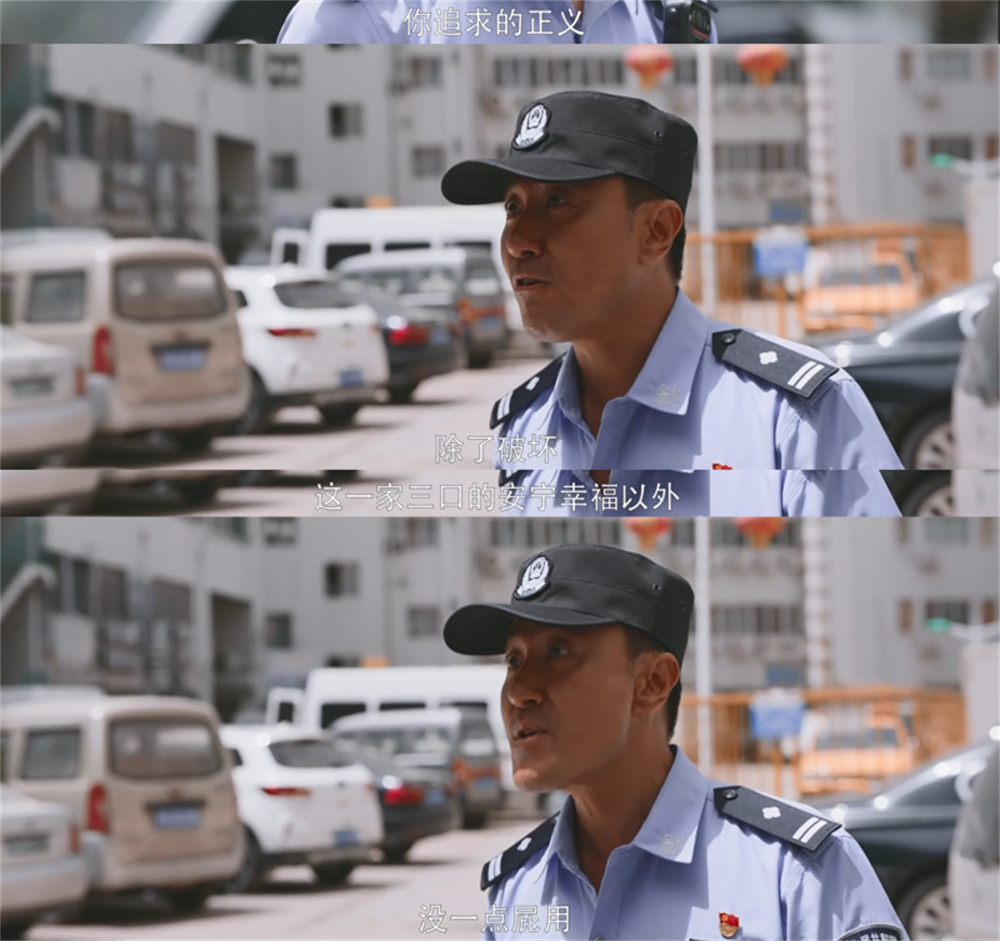
What the audience expects in their hearts is "evil will be rewarded with immediate effect". But that's just an ideal situation. The behavior of the police in the play represents the most common reality: rogues have a hundred ways to toss good people. What they can do, they can only go around; if there is a conflict with the rogue, try to mediate on the spot so as not to resolve the conflict. If there is a big problem, it will not be a big one.
"Honor of the Police" is not a "cool drama". There are too many "bad guys" in the play. Whether ordinary people or police officers, they are often unable to do anything about them, and almost always end in the compromise between good people and rogues.
In the words of the screenwriter Zhao Dongling, "Police Honor" "does not pretend to be false, does not dwarf, does not exaggerate the beauty, asks real problems, faces the real reality, and whether it can be solved is not the task of the screenwriter." Just for the "unreasonable" reality, should the screenwriter maintain a sense of questioning and criticism? Although "evil pays off" is an ideal situation, can we compromise with evil and condone evil people in order to save trouble because it has not been realized?
Also, did the screenwriter overplay the "weakness" of the grassroots police? For example, in the plot of episodes 12-13, it was clearly a lady who slapped Xia Jie, but she went to the police station to make trouble, asking the people at the police station to go to her house to apologize. The police station did the same. We believe that the cases in the play may have real samples, but more often, in front of law enforcement, the common people are the real weak - but the show only emphasizes that the police are "weak". "Police Honor" has caused differences in evaluation. Although some people praised the series, some people think that it seriously glorifies public power.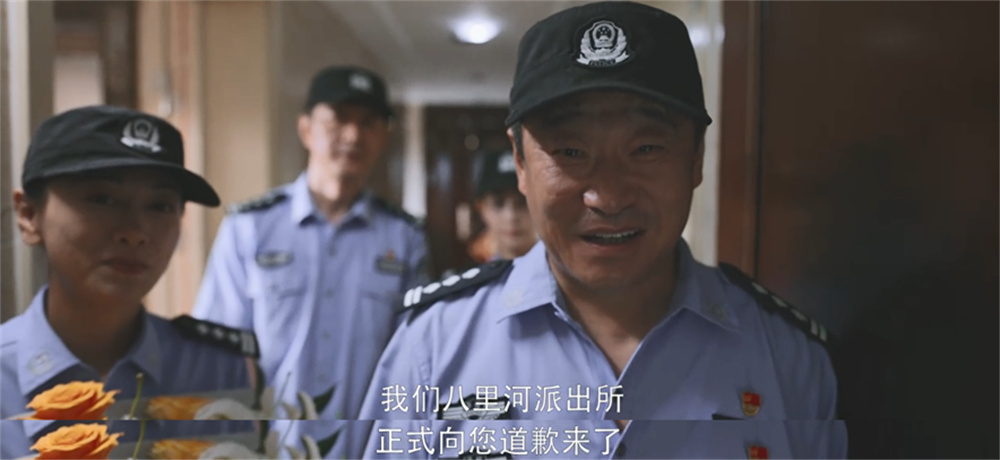
The reality is not a "cool drama", and the audience may feel "suffering". I hope this grievance can become the driving force for us to forge ahead and explore a more reasonable solution, instead of taking "harmony" as "wisdom". If "Police Honor" had such a touching effect, it would be great.
"Police Honor" is a bit different. It is a relatively rare drama on the market that focuses on the police at the grassroots police station. The police usually face various civil disputes. thing. For example, who lost his diaper, who made some kind of noise upstairs, whose door was locked but the key was left in the house, who walked the dog without a leash, who had conflicts between husband and wife, and whose husband "run away from home" "It's...

"Police Honor" poster
The main task of the police is to "mediate", according to the "Fengqiao Spirit" that has been mentioned in the play, that is, "mobilize and rely on the masses, insist that conflicts are not turned over, resolve them on the spot, and achieve fewer arrests and better security". Some viewers said that this drama is a bit like the drama version of "Guarding the Liberation West", the temperament is really similar, and the grassroots police are equally amazing.The story takes place in a grassroots police station called Balihe. The residents of the jurisdiction are complex, and there are many disputes on weekdays. The director Wang Shouyi (played by Wang Jingchun) has rich experience, strategizing strategies, and is well versed in all kinds of human situations.

Wang Shouyi (Wang Jingchun)
Four young people came to the police station, each with their own characteristics. Li Dawei (played by Zhang Ruoyun) is clever, but also has a broken mouth. He can't stop talking about one mouth, but he is a good young man at the bottom, and he mainly depends on him to be active on weekdays.
Li Dawei (played by Zhang Ruoyun)
Xia Jie (played by Bai Lu) is the daughter of a martyr. What worries her is that the seniors at the police station take too much care of her because of her status. She cherishes her father's glory, but she also longs to gain recognition for her own efforts.
Xia Jie (white deer)
Yang Shu (played by Xu Kaipin) is a top student with a master's degree in law from Peking University. He was admitted to the Municipal Bureau with the first place and was sent to the grass-roots police station to "exercise". He has rich theoretical knowledge, but lacks practical experience at the grassroots level. This visit to the grassroots level is an important "make-up lesson".
Poplar (played by Xu Kaipin)
Zhao Jiwei (played by Cao Lu) came from a hard life. He worked hard all the way from a rural child to become a policeman, working diligently and diligently. Sometimes he thinks community work is too piecemeal and worthless, but slowly he changes his mind.
Zhao Jiwei (played by Cao Lu)
Each of the four young men also had a master. Li Dawei and his master Chen Xincheng (played by Ning Li) have the best rivalry scenes. One is talkative, the other is unsmiling, the idea is so old and irritating, and the relationship between the characters is full of tension.
Li Dawei was often "scolded" by Chen Xincheng
The main story line of "Police Honor" is the growth of four young grassroots policemen. During this process, various things that may be encountered in the work of grassroots policemen are interspersed, and this reflects the working status of grassroots policemen.Summarize the work characteristics of grassroots police in four words: it is not a "cool drama".
There will be lone heroes in cool dramas. Even in the face of extremely vicious criminals, our protagonist dares to go deep into the tiger's den alone.
"Police Honor" tells you that there is no such thing as a "lone hero". In order to catch a Class A wanted criminal, a dozen or so police officers were dispatched, fully armed, and took two vans. Li Dawei was confused, and Chen Xincheng scolded him: The police are not here to "play for their lives".

Lone Hero is more of a dramatic effect
It was obvious that the thief's path had been blocked by the iron gate, but seeing that the thief had a knife in his hand, and that there was a snack street opposite the iron gate, the police gave up the pursuit and told the thief, "I've got the wrong person." Because if the thief pulls out the knife, the police will be in danger; if the thief goes to the snack street to hijack passers-by, the consequences will be even more disastrous. Of course, the police later caught the thief through "outwitting".
Temporarily "let go" of thieves
Li Dawei and the auxiliary police saw that the two robbers were about to flee and acted without permission against the master's order. Although Li Dawei successfully arrested the robbers, he was criticized by his master and the director. The director said, what if the mission fails? Li Dawei said he was not afraid of sacrifice. The director said, you also brought an auxiliary policeman, and the auxiliary policeman accompanies you for more than 2,000 a month?
Wang Shouyi told the truth
The director finally said a truth that did not sound politically correct at first glance: "I would rather go to the confinement room every day to deliver meals to you than to go to the cemetery every year to visit your graves."It's not a "cool drama", it's an improvement in the creator's concept. Instead of exaggerating personal heroism, not encouraging "heroes", and not glorifying sacrifices; instead, we deeply realize that the life of the police is also life. The police must protect the people, but they must protect themselves first.

Do not blindly advocate personal heroism
It is not a "cool drama", but it is also reflected in the handling of civil disputes in the drama. This is also a point of great controversy in the drama, because it does not fully follow the logic of "good will be rewarded with good, and evil will be rewarded with evil", but pays more attention to the results of mediation. As long as the result is "the conflict is resolved and the matter is calmed down", it might as well give the good a step back, even if the evil has not been punished enough.Very typical is a dispute that continued on and off from episode 7 to episode 10. An old man walks his dog without a leash, scaring a little girl. The old man then got into an argument with the girl's parents, a young couple. This is the old man's fault, but the old man not only didn't think he was at fault, but also corrupted the young couple and asked them to lose money. Obviously, this old man is "disrespectful for the old" and is no different from making trouble for the people.
When the police dealt with the dispute, the old man fainted with anger, and it was okay to send him to the hospital. The next day, his sons and daughters took the living old man to the police station and asked the police to pay for the medical bills. The police persuaded them to leave.
The old man's children then depended on the young couple. Young couples naturally don't pay for so-called medical expenses - what kind of reason should they pay for it. The old man's children and relatives surrounded the door of the young couple's house, making all kinds of riots. They also wrote big characters with red paint on the white wall outside the door, causing the young couple's family to be disturbed, and the whole family was trembling. Nervous breakdown.

A family of three suffered a disaster and could only go out to hide for a while.
How did the police handle it? Wang Shou saw early in the morning that the old man's family wanted to corrupt money, and his first reaction was: let the young couple move out for a while.The audience must feel aggrieved when they see this: how come, good people have to let bad people?

Good people have to hide from bad people
Yang Shu's master, Cao Jianjun (played by Zhao Yang), a senior police officer, found out that the grandfather's grandson was taking drugs, and was even suspected of selling drugs for him. .What, if it wasn't for the grandfather's grandsons who had "handles", the police would have nothing to do with them?
Cao Jianjun persuaded the young couple to choose reconciliation, and the two sides should not take responsibility for each other. Young couples ask: What are their responsibilities? Their children were frightened by dogs, they were blackmailed by the old man, and the old man's family came to harass them in various ways... They did nothing wrong, why should they take responsibility?

When evil people provoke good people, why should good people be held responsible?
Yang Shu had a dispute with his master over this. Yang Shu expressed the confusion in the audience's heart: "What about the villains of the Sun family? Let them go, where is the law, where is the fairness?"But the final result: the young couple chose to reconcile. And the value stance of the drama, from Wang Shouyi to Cao Jianjun, is also on the side of "reconciliation".
In the work experience of Cao Jianjun and Wang Shouyi, they have no direct evidence to prove that the old man's family "did evil"; even if there is evidence, the young couple and the old man's family have a lawsuit for a year and a half, and the time is spent in There, the old man's family will definitely continue to hold on; even if the law decides that the young couple wins, with the virtue of the old man's family, they are unlikely to apologize... Then, the young couple's lawsuit is to fight for one breath , but this tone is time-consuming and labor-intensive, and it may not be able to win it back, and I will not have a happy birthday in the next year or two.
So, in order to get the young couple's life back on track as quickly as possible, they suggested reconciliation. Cao Jianjun angrily rebuked Yang Shu for saying, "The justice you pursue is useless except to destroy the happiness and tranquility of this family of three." Wang Shouyi also called Yang Shu over and taught him, "You have come to the grassroots to exercise. No matter how you develop in the future, the most important thing is to learn the world... Nothing is black and white, not even right or wrong. Unchangeable."

Is such a compromise really worth advocating?
In short, the suffering that the young couple had suffered before was considered bad luck and wasted in vain. Although there is a follow-up in the opening lines of episode 11: the two sons of the old man have been involved in the underworld and have been handed over to the Criminal Police Team of the City Bureau. But the audience's grievance was not fundamentally relieved: if the old man's family was not "so coincidentally" involved in the underworld, in the face of such villains and villains, would it really only be bad luck? Why let good people let bad people? Is there really no way to take the bad guy?What the audience expects in their hearts is "evil will be rewarded with immediate effect". But that's just an ideal situation. The behavior of the police in the play represents the most common reality: rogues have a hundred ways to toss good people. What they can do, they can only go around; if there is a conflict with the rogue, try to mediate on the spot so as not to resolve the conflict. If there is a big problem, it will not be a big one.
"Honor of the Police" is not a "cool drama". There are too many "bad guys" in the play. Whether ordinary people or police officers, they are often unable to do anything about them, and almost always end in the compromise between good people and rogues.
In the words of the screenwriter Zhao Dongling, "Police Honor" "does not pretend to be false, does not dwarf, does not exaggerate the beauty, asks real problems, faces the real reality, and whether it can be solved is not the task of the screenwriter." Just for the "unreasonable" reality, should the screenwriter maintain a sense of questioning and criticism? Although "evil pays off" is an ideal situation, can we compromise with evil and condone evil people in order to save trouble because it has not been realized?
Also, did the screenwriter overplay the "weakness" of the grassroots police? For example, in the plot of episodes 12-13, it was clearly a lady who slapped Xia Jie, but she went to the police station to make trouble, asking the people at the police station to go to her house to apologize. The police station did the same. We believe that the cases in the play may have real samples, but more often, in front of law enforcement, the common people are the real weak - but the show only emphasizes that the police are "weak". "Police Honor" has caused differences in evaluation. Although some people praised the series, some people think that it seriously glorifies public power.

The police apologise to those who "assaulted the police," a situation that exists almost exclusively on the show.
But in any case, it should be acknowledged: "Police Honor" has broadened its creative scale. It at least confronts the gray area of reality and the complex and mottled background of reality, allowing us to have a deeper understanding of the complexity of grassroots work. .The reality is not a "cool drama", and the audience may feel "suffering". I hope this grievance can become the driving force for us to forge ahead and explore a more reasonable solution, instead of taking "harmony" as "wisdom". If "Police Honor" had such a touching effect, it would be great.
Related Posts